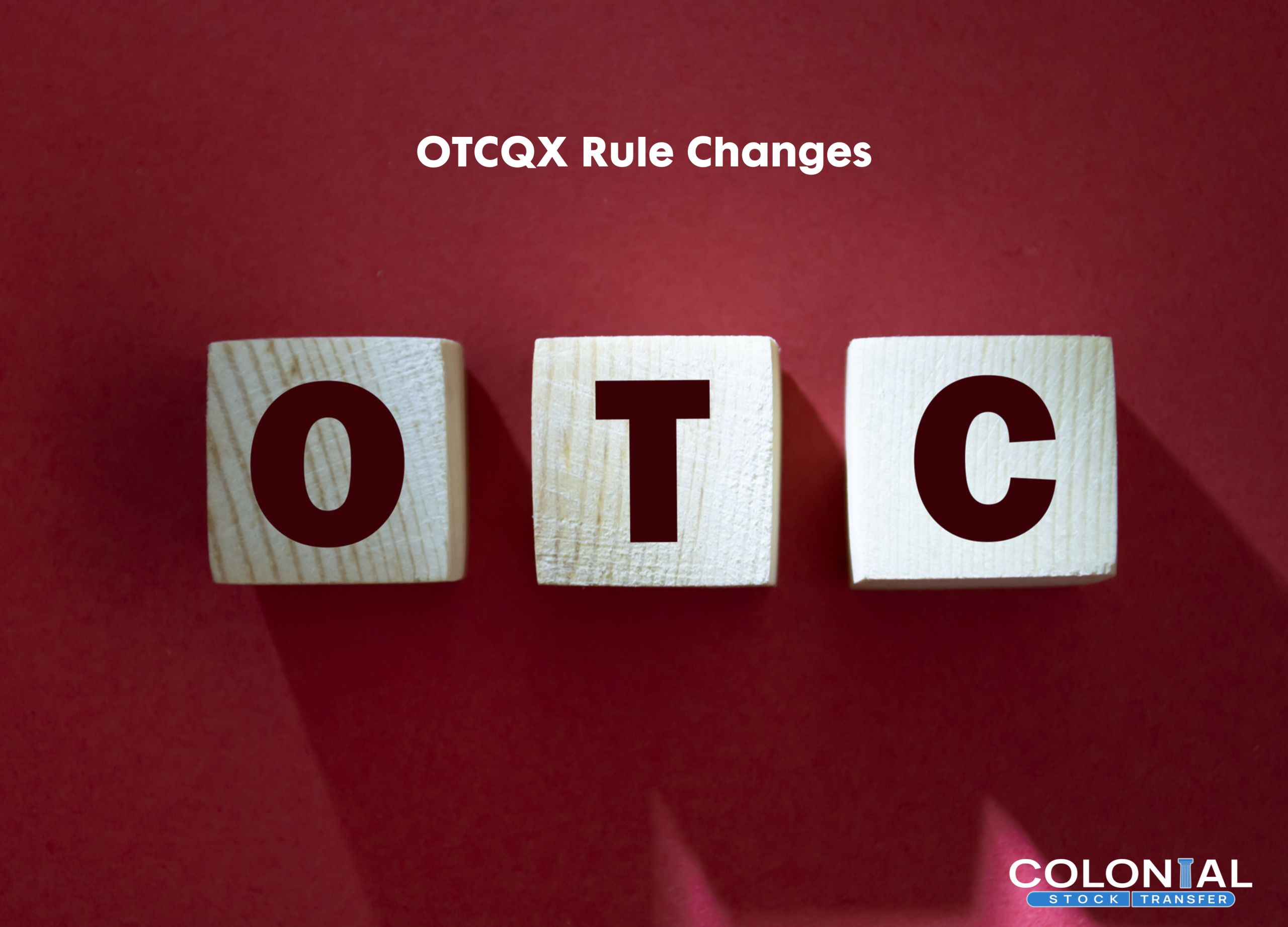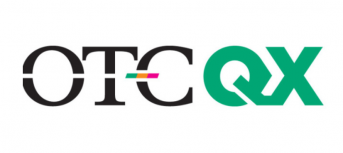

Effective December 12, 2019, the OTCQX rules to list and maintain a company on the OTCQX have been modified. The OTCQX listing holds the highest level of entry compared to its kinship with other market tiers on OTC Markets, and inherently has “high standards”. By complying to these recent changes, issuers can still remain on the OTCQX. Below are the new OTCQX listing requirements, with a brief description of each:
1. OTCQX Sponsor Exemption for Securities Publicly Traded for at least One Year
A letter of introduction can now be submitted through a company’s primary outside securities counsel in place of an OTCQX sponsor. Certain SEC reporting issuers may provide a Letter of Introduction from their outside securities counsel in accordance with Section 2.6(b). Specific criteria will still be required, such as the Company is in good standing in each jurisdiction in which it is licensed and doing business (Please see section 4.4 for a complete list of what statements The Letter of Introduction must include).
2. Change of Control Notification
Companies are obligated to notify OTC Markets within 20 days if a Change of Control occurs. Companies must fill out a new OTCQX Application with its accompanying application fee. Failure to neglect this rule may result in suspension or removal from the OTCQX. Changes of Control are defined as:
- Any “person” (as such term is used in Sections 13(d) and 14(d) of the Exchange Act) becoming the “beneficial owner” (as defined in Rule 13d-3 of the Exchange Act), directly or indirectly, of securities of the Company representing fifty percent (50%) or more of the total voting power represented by the Company’s then outstanding voting securities;
- The consummation of the sale or disposition by the Company of all or substantially all of the Company’s assets;
- A change in the composition of the Company’s board of directors occurring within a two (2) year period, as a result of which fewer than a majority of the directors are directors immediately prior to such change; or
- The consummation of a merger or consolidation of the business with any other corporation, other than a merger or consolidation which would result in the voting securities of the business outstanding immediately prior thereto continuing to represent (either by remaining outstanding or by being converted into voting securities of the surviving entity or its parent) at least fifty percent (50%) of the total voting power represented by the voting securities of the Company or such surviving entity or its parent outstanding immediately after such merger or consolidation.
3. More Corporate Governance Requirements for International Companies
International companies not on a Qualified Foreign Stock Exchange must comply to these standards to be listed on the OTCQX:
- Have a board of directors that includes at least two Independent Directors;
- Have an Audit Committee, a majority of the members of which are Independent Directors; and
- Conduct annual shareholder meetings and make annual financial reports available to its shareholders at least 15 calendar days prior to such meetings
International companies that are already established on the OTCQX without presence on a Qualified Foreign Stock Exchange have until January 1, 2021, to comply.
4. New Definition of “Independent Director”
Independent Director is officially defined now as: “a Person other than an Executive Officer or employee of the business or any other Person having a relationship which, in the opinion of the business’ board of directors, would interfere with the exercise of independent judgment in carrying out their responsibilities as a director.”
The following persons shall not be considered independent:
- A director who is, or at any time during the past three years was, employed by the Company;
- A director who accepted or has a Family member who accepted any compensation from the Company in excess of $120,000 during any fiscal year within the three years preceding the determination of independence, other than compensation for board or board committee service; compensation paid to a Family Member who is an employee (other than an executive officer) of the Company; or benefits under a tax-qualified retirement plan, or nondiscretionary compensation; or
- A director who is the Family Member of a Person who is, or at any time during the past three years was, employed by the Company as an executive officer.
5. Canadian Companies must use a Transfer Agent that Participates in the Transfer Agent Verified Shares Program
All Canadian companies must utilize a transfer agent participating in the Transfer Agent Verified Shares Program by April 1, 2020. Additionally, a Canadian business must authorize its Transfer Agent to provide to OTC Markets Group upon its request information related to the business’ securities.
Colonial Stock Transfer Co. Inc. is active and apart of the OTC Verified Shares Program. Please contact us for more information.
6. Mandatory disclosure of all convertible debt held by U.S. issuers
U.S. businesses must disclose promissory notes, convertible notes, irrevocable transfer agent reserve letters, and anything in relation of that sort in granting a class of the issuer’s equity securities. Businesses should disclose this information, along with its securities purchase agreement(s) either through the SEC’s EDGAR system or the OTC Disclosure & News Service, as applicable. Our SEC Filing Services help companies submit these disclosures, ensuring OTCQX listing requirements to be adoptable.




